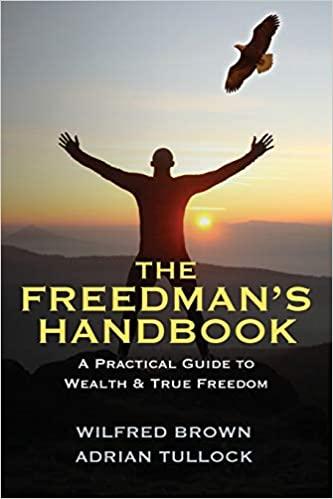Question
QUESTION 3 . Suppose you also have researched longer back on the historical rate of returns (HPYs) of Equity, Aggregate Bond and also Cash and
QUESTION 3. Suppose you also have researched longer back on the historical rate of returns (HPYs) of Equity, Aggregate Bond and also Cash and estimated the return of each asset class in different economic scenarios as in the following table, and you also predict the likelihood (probability) of the scenarios in the next year from research (1.5 marks in total).
| Scenarios | Probability | Historical annual rate of return | ||
|
|
| Equity | Aggregate Bond | Cash |
| Recession | 10% | -10.00% | -3.00% | 0.75% |
| Slow growth | 30% | -2.00% | -1.00% | 0.50% |
| Good growth | 40% | 4.00% | 4.00% | 0.63% |
| High growth | 20% | 15.00% | 2.00% | 0.13% |
Estimate:
Expected rate of return (HPY) of Equity, Bond and Cash (0.5 mark).
Standard deviation of the returns of Equity, Bond and Cash. Also estimate the covariance & correlation between Equity & Bond returns based on the data in the table (0.5 mark).
Given your estimation on each individual funds (Equity & Bond) expected return, risk and correlation in b., now if your clients want to put money into both of these 2 funds and combine them into an investment portfolio H, and you have suggested her to allocate 65% in Equity and 35% in Bond (asset allocation/investment decision), what will be her portfolio H's expected return & risk (0.5 mark)?
QUESTION 4. Now, suppose you want to provide clients visualization of the effect of your asset allocation decision on her Portfolio H's performance in terms of both return and risk (2 marks in total).
Change the weights into each of the above assets from 0% to 100% with increment of 2% to obtain the possible investment opportunities (portfolios). Present these investment opportunities in a table (Please do NOT allow short-selling). Depict the investment opportunities in a graph in which the x-axis is the portfolio standard deviation of return and the y-axis the expected portfolio return (1 mark).
Among all investment opportunities (portfolios), find out the portfolio (i.e. % in each asset investment, expected returns and risk of the portfolio) with 1) minimum variance (risk) or 2) Best return-risk relationship (the one with the highest Sharpe ratio, and we assume that short selling is NOT allowed) (hint: use Excel Solver, with the annual risk-free rate = 0.5%) (1 mark).
I need answer for Q4, Tyvm!
Step by Step Solution
There are 3 Steps involved in it
Step: 1

Get Instant Access to Expert-Tailored Solutions
See step-by-step solutions with expert insights and AI powered tools for academic success
Step: 2

Step: 3

Ace Your Homework with AI
Get the answers you need in no time with our AI-driven, step-by-step assistance
Get Started


